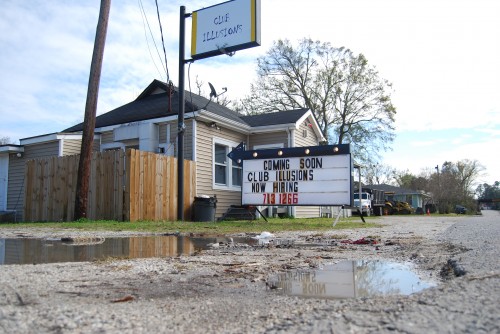
Councilman seeks longer bar hours
January 8, 201324 locals vie for Terrebonne’s Teenager of the Year Award
January 8, 2013Days leading up to the new year were full of talk on television networks and in local homes and restaurants of the “fiscal cliff” the U.S. was preparing to hurl over.
Now that the deadline for approval of a federal taxing plan has passed, met with a compromise between the White House, the House of Representatives and the Senate, local business leaders and financial analysts say the most widespread effects on households in the Tri-parish region will be minimal, compared to what could have been.
The biggest effect will be the estimated $600 to $1,000 per year that will come out of employee paychecks and into Social Security. The money represents the end of a break on Social Security taxes, returning them to their former higher levels. The Tax Policy Center, which examines tax issues for American households, estimates that in 2013 the tax deduction for someone making between $40,000 and $50,000 will rise by just under $600. Households making $50,000 to $75,000 could see an increase of just over $800.
Several local business leaders have said that while the focus nationally has been on the budget and its cliff, the real impact on businesses and families will come from rapidly increasing health insurance premiums.
“For more small and large businesses and families here it is the cost of health care,” said Steve Vassallo, CEO of the Terrebonne Economic Development Authority. “We are already seeing here that there is a good strong possibility the employee monthly cost is looking close to doubling.”
The fiscal cliff compromises resulted in higher income tax payments for Americans making more than $400,000 per year, and a loss of around $600 to $1,000 per year from paychecks of the far less privileged.
But Vassallo maintains that the health care costs he is projecting will affect many more people.
“Additional taxes on those wage classifications will be an additional burden on the higher income echelon,” he said. “The health care affects us all, whether we make $20,000 per year or $520,000, everybody is going to be impacted by this.”
In some cases, the premium jumps are the result of new rules built into the Affordable Health Care Act, which include the ability of insurance companies in many cases to raise premiums for now on clients defined as high risk, according to national reports on changes in the insurance markets since the act was passed.
Some national experts on insurance say it is the hope of some companies to raise rates on those they are able to before 2014, when the full force of the law takes effect and essentially forces that practice to a standstill.
Vassallo said the health care and insurance costs mean a lot to local employers right now, as they struggle to attract workers in an area with low unemployment and many unmet needs for skilled labor. The costs of benefits, however, could result in some employers looking less aggressively to fill open slots.
“In terms of benefits, things like IRAs, sick pay, disability, that can really be seen as a percentage of the full salary, and when companies are hiring that can’t be ignored,” Vassallo said. “It’s going to closely restrict job growth.”
In one area of health care, however, the fiscal cliff compromise did have an effect local hospital administrators say is positive.
One of the side-effects of the spending bill could have been a reduction in the money doctors get paid by Medicaid by 26 percent.
“Most doctors would have dropped seeing Medicaid patients,” said Terrebonne General Medical Center Board Chairman Mike Voisin.
Had that occurred, Voisin said, many people who now go to physician offices with minor complaints would have sought help at emergency rooms instead, placing a great strain on local resources and skyrocketing hospital costs. The Tri-parish region’s outgoing congressman, Jeff Landry, who came into office on a Tea Party surge, was anything but complimentary of his Congress’ last official act.
“While political pundits spend the day naming winners and losers in the negotiations, the real scoreboard reads Washington politicians the winners and American people the losers. The bill pushed by the President and passed by Congress did not solve our fiscal problem; its tax increases, spending increases and deficit increases only transported Americans to a higher cliff from which to fall.”
Rep. Charles Boustany, whose district now includes Landry’s old stomping grounds, started the new congressional year by announcing support for a balanced budget amendment to the U.S. Constitution, introduced by Rep. Bob Goodlatte R-Va.
“As the new Congress begins, I remain committed to cut government spending,” Boustany said. “The people of South Louisiana are tired of seeing this administration continuously propose bloated budgets containing trillion dollar deficits every year. The only way to control this administration’s out-of-control spending is for Congress to limit the annual federal budget. These Balanced Budget amendments put fiscal responsibility at the forefront of the legislative agenda and directly address the resonating fear of Americans across the country: no more deficits.”
But much of the controversy discussed on the national stage as the year drew to a close – and what will be discussed as the White House and Congress enter round two of fiscal cliff decisions, likely some time next month – has not affected the local economy much because it is rooted in oil and gas, say local business officials.
That’s kept the local economy strong even though there have been fits and starts, said Nolan Dumas, a financial advisor at DL Wealth Management in Houma.
“Pretty much it is 90 percent emotion,” Dumas said of decisions people make based on such current events discussions. “We are talking about CNBC or Fox or NBC. Because there is always going to be a headline and a lot of people investing on emotions.”
“We did go over the fiscal cliff, taxes did go up for people making over $400,000 and over $450,000 and, yes, that is going to take some disposable income out of higher earning individuals,” Dumas said. “That is going to take some growth away. But in 2007 and 2009, we had that really big dip in the markets. Around here, business kept booming because we are in oil and gas and we build boats. We have been sputtering along.”
That’s an important consideration for local investors, Dumas said, because the portfolios of many include local companies, or global companies that rely on local output.
His message to local investors is that no matter how shrill the commentators get, it is important to look at objective numbers when making investment decisions.
Despite a lot of doom and gloom that’s gone over the airwaves, Dumas said, 2012 was generally not a bad year.
“Inflation has not been that high, so it hasn’t eaten into any returns – this past year,” he said. “For the Standard & Poors 500, 2012 was a good year. For 2013, there will be a lot of emotions and headlines. But there are always opportunities to make gains and profits.”
The U.S., Dumas said, is not going anywhere. The dollar is still the major currency in the global economic system.
“No, we are not going to be Greece,” he said.
But the outlook, Dumas maintains, is not all rosy either.
“If we don’t get serious about reigning in our spending, there will have to be some kind of tax increases,” he said.








